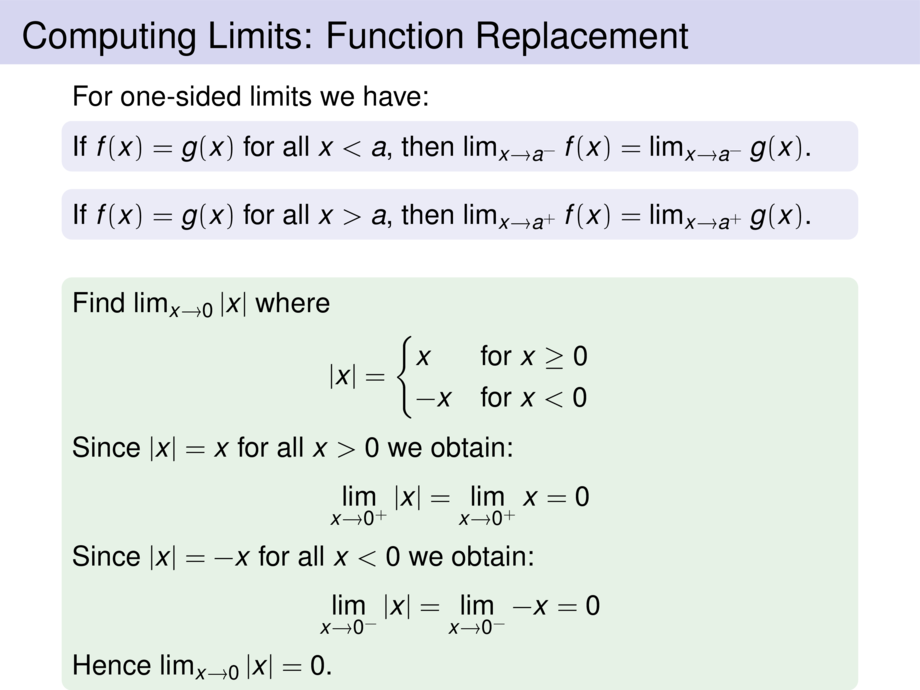



































































































115/145
\begin{frame}
\frametitle{Computing Limits: Function Replacement}
For one-sided limits we have:
\begin{block}{}
If $f(x) = g(x)$ for all $x < a$, then $\lim_{x \to a^-} f(x) = \lim_{x \to a^-} g(x)$.
\end{block}
\begin{block}{}
If $f(x) = g(x)$ for all $x > a$, then $\lim_{x \to a^+} f(x) = \lim_{x \to a^+} g(x)$.
\end{block}
\bigskip
\begin{exampleblock}{}
Find $\lim_{x\to 0} |x|$ where
\begin{talign}
|x| = \begin{cases}
x&\text{for $x \ge 0$}\\
-x&\text{for $x < 0$}
\end{cases}
\end{talign}
\pause
Since $|x| = x$ for all $x > 0$ we obtain:
\begin{talign}
\lim_{x\to 0^+} |x| = \lim_{x\to 0^+} x \mpause[1]{ = 0}
\end{talign}
\pause\pause
Since $|x| = -x$ for all $x < 0$ we obtain:
\begin{talign}
\lim_{x\to 0^-} |x| = \lim_{x\to 0^-} -x \mpause[1]{ = 0}
\end{talign}
\pause\pause
Hence $\lim_{x\to 0} |x| = 0$.
\end{exampleblock}
\vspace{10cm}
\end{frame}

